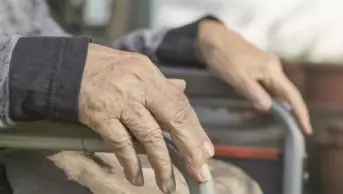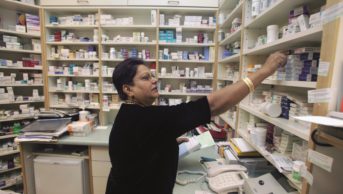
Patients living in remote, rural areas served by dispensing GP practices are just as entitled to pharmaceutical care as those who live in urban areas, Clare Morrison, lead pharmacist (North), NHS Highland, told the Royal Pharmaceutical Society’s annual conference on 13 September 2015[1]
.
The findings from a pilot, in which a pharmacist independent prescriber provided face-to-face medication reviews in two dispensing practices, suggest that such care can deliver many benefits to patients.
“We hear a lot about new service developments and plans for community pharmacy and it can be really easy to forget that there’s this small percentage of the population that live in rural and remote areas who just do not have access to community pharmacy services,” Morrison said.
NHS Highland wanted to test a clinical pharmacist service in two of its most remote areas – in the north and the west, where seven out of ten people live in areas defined as very remote. Population density in this area ranges between 2 and 14 people per square kilometre — compared with a Scottish average of 68. “The reason this sparsely populated area is important is because it hasn’t got any community pharmacies in it — none at all,” said Morrison.
The health board established a clinical pharmacist pilot in August 2014 in which a pharmacist checked the appropriateness of and compliance with medicines during face-to-face reviews with patients from two dispensing practices: one in Sutherland and another in the far north of Caithness.
In six months, the pharmacist reviewed 141 patients taking a median of 11 medicines each. Of those 141 patients, 92% (130) had one or more pharmaceutical care issue.
“The pilot identified a massive need for the service,” said Morrison.
In total, 241 pharmaceutical care issues were identified, with 87% (209) resolved immediately by the pharmacist during the consultation. Of the issues that were resolved, 27% were resolved by prescribing a new medicine or a new dose of an established medicine, 56% were resolved through giving advice, such as on the timing of administration of a medicine, and 17% were resolved through updating the patient’s repeat medicines record.
“At a time when GPs are stretched it was really important to show that the pharmacist was able to resolve nearly everything right there and then within the appointment,” said Morrison.
Typical examples of issues resolved by the pharmacist included hoarseness caused by using a steroid inhaler — resolved by prescribing a spacer and providing advice on rinsing the mouth afterwards; an excessive dose of ibuprofen as a result of the drug being both prescribed and purchased over the internet, resolved through giving advice; a patient with swallowing difficulties who could not manage round paracetamol tablets, resolved by prescribing caplets; and an inappropriate dose of a proton pump inhibitor, where the patient was being maintained on the treatment dose rather than being stepped down.
The pilot has now moved to phase 2, with the service relocating to two new GP dispensing practices with a new pharmacist on board to assess whether the service is generalisable. The researchers are also conducting a qualitative evaluation of the pilot where the patients, GPs and practice staff are asked their views on the service.
“Our pilot provides evidence for the need for pharmacist input into dispensing practices,” concluded Morrison. “This is one way that we can deliver high quality pharmaceutical care to patients in remote areas.”
References
[1] Morrison C, MacRae Y, Cunningham S, et al. Evaluating pharmacist input to pharmaceutical care of patients in dispensing medical practices in the Scottish Highlands. Research session 1: Providing pharmacy services to diverse communities. International Journal of Pharmacy Practice, 23: 4–9. doi: 10.1111/ijpp.12209.


